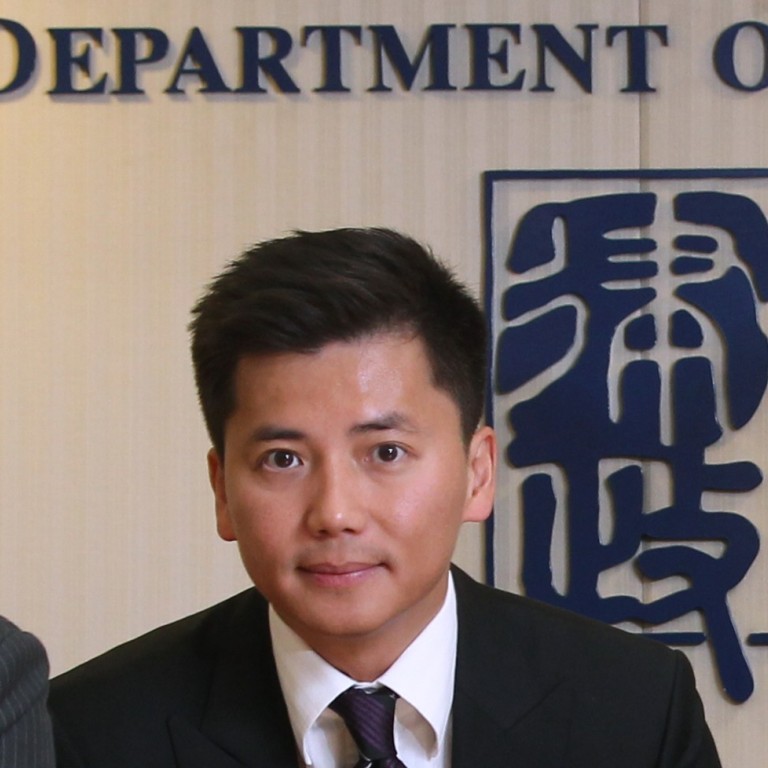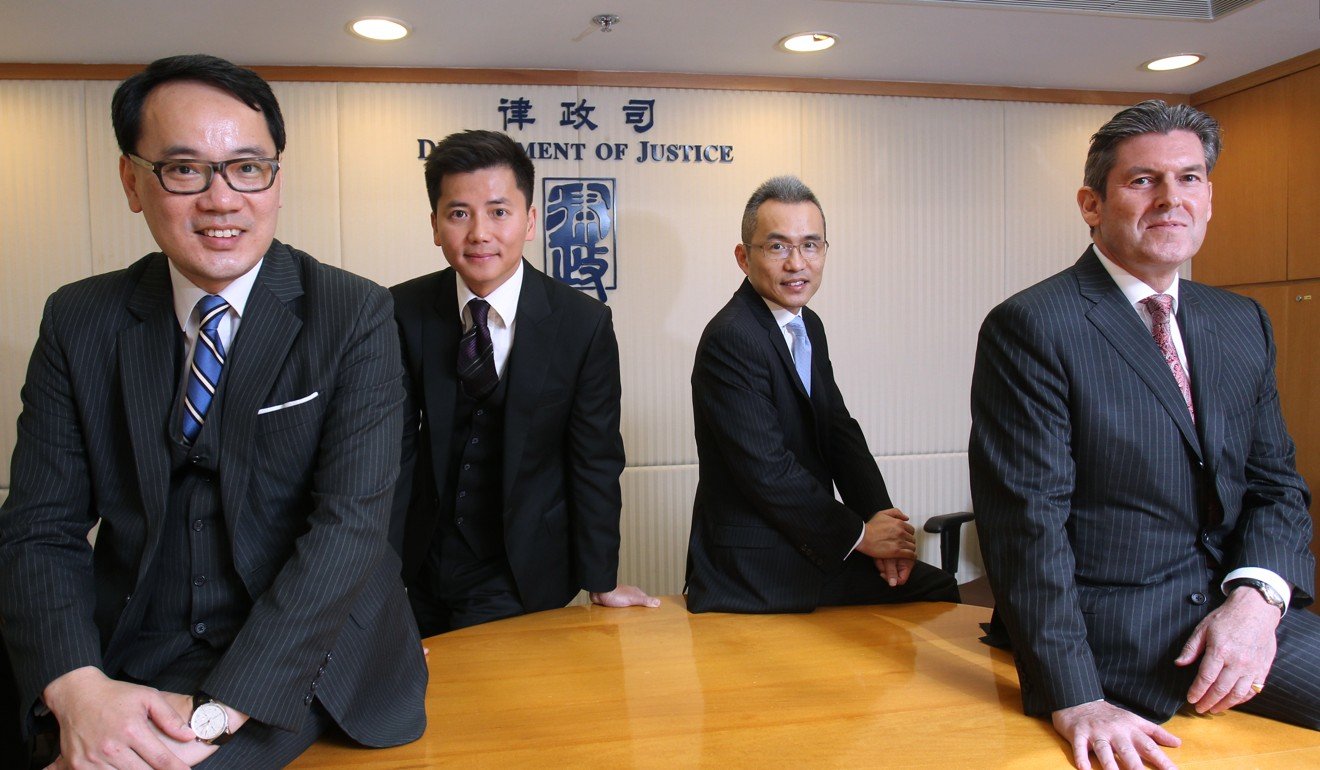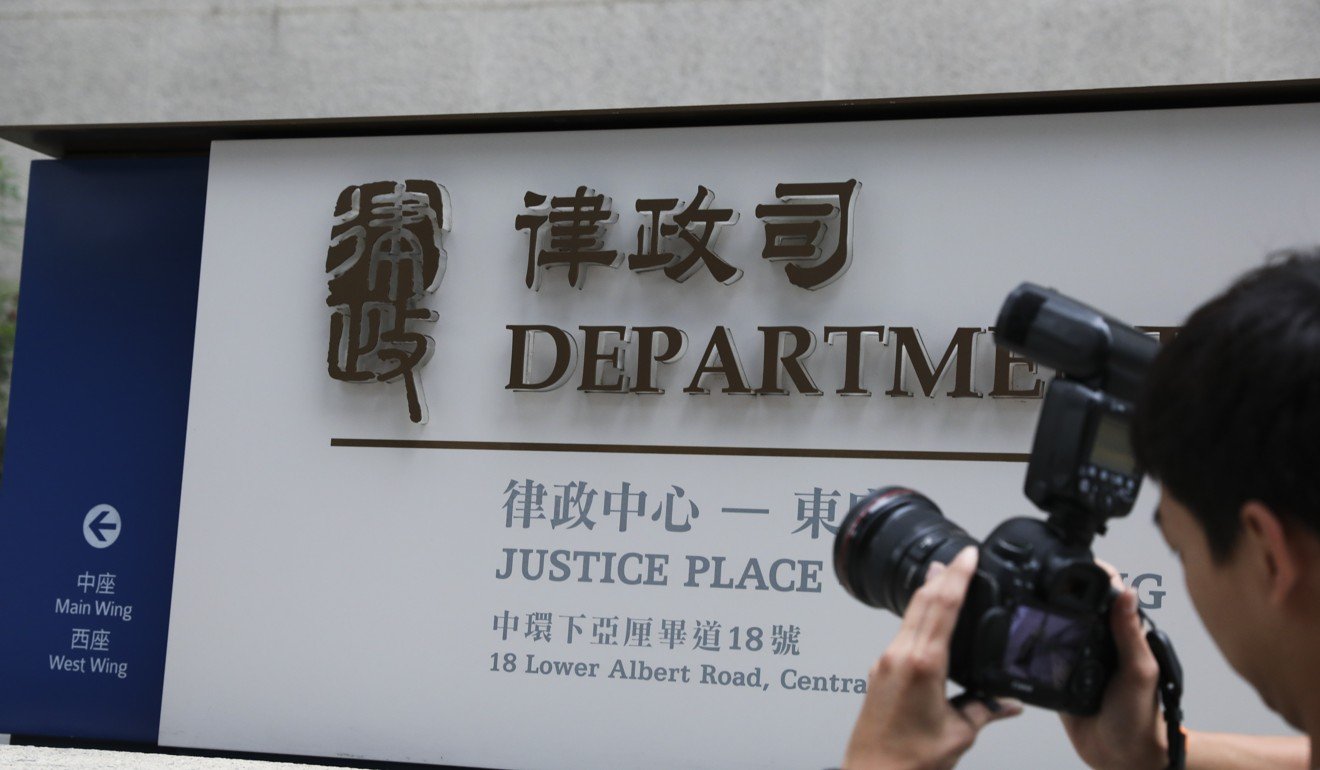
Deputy Director of Public Prosecutions Martin Hui to leave justice department and enter private practice later this year
- Senior prosecutor expected to join either Plowman Chambers or Temple Chambers
- News comes on same day David Leung is officially handed director’s job on permanent basis
One of Hong Kong’s top prosecutors is leaving the justice department and will join a private practice later this year, the Post has learned.
The departure of Deputy Director of Public Prosecutions Martin Hui Siu-ting comes as the Department of Justice (DOJ) is trying to groom talent from within to fill the void left by retirement, or veteran prosecutors leaving.
It also coincided with a gazette notice on Friday that confirmed David Leung Cheuk-yin’s appointment as DPP, after he held the acting position for more than a year.
Hui, 47, is known as one of the DOJ’s “home-grown” senior counsel, after spending 23 years working his way up from an entry-level position as government counsel, to the deputy to the top prosecutor.

The Post has learned that Hui has to give one year’s notice before formally entering private practice in the second half of this year.
Legal sources said Hui had been tipped to leave the DOJ months ago, and could be joining Plowman Chambers.
The DOJ declined to comment on whether Hui had already resigned.
Two lawyers at Plowman Chambers declined to comment, and said it was for Hui to speak or not.
Hui joined the then Attorney General’s Chambers in 1995, and prosecuted cases involving fraud, corruption, and human rights. He was appointed as senior counsel in 2015, alongside incumbent Director of Public Prosecutions David Leung Cheuk-yin, and another deputy, William Tam Yiu-ho.
The three, together with Wesley Wong Wai-chung, are among those senior counsel brought up through the ranks of the justice department, a strategy the DOJ adopted in the past decade to reduce its reliance on external lawyers.
Two years to investigate abuse against national anthem too much time, lawyers say
Since 2015, Hui has served as the chief of staff in the prosecution director’s office, overseeing management decisions, training and seeking external advice from outside lawyers.
Although his duties have moved away from appearing in court, Hui was not shy about his eagerness to return to the fray of a trial.
In a 2016 DOJ publication, Hui wrote that he “remained eager for advocacy work and treasured every chance of being given an appeal or trial to prosecute from time to time”.
However, since then he has only appeared in the city’s higher courts 10 times.
Former deputy DPP Alain Sham Chung-ping, who retired from the DOJ in 2016, described his former colleague as young and capable, and said it was only natural he would consider private practice at this stage.

The higher earning potential aside, Sham said there could be other incentives for similar moves.
“In the DOJ, one would be dealing with personnel issues, all the meetings and planning, not to mention the inevitable internal politics,” he said.
The DOJ has been recovering from the loss of several veteran prosecutors, and Sham said it was still being led by a relatively young team, although the situation may not be as bad compared to 10 years ago.
“No one is indispensable, in the end someone still has to do the job,” Sham said. “But to equip someone with the right experience, it does not happen in a year or so.”
As deputy director, Hui’s monthly salary is HK$200,000, although legal source said barristers in private practice could earn several times that.
Stop abuse of prosecutors and judges, says Hong Kong’s DPP
Meanwhile, Leung, who was appointed to the top job on a temporary basis in December 2017, now has the role permanently after a government notice showed that Chief Executive Carrie Lam Cheng Yuet-ngor had made the appointment official, but back dated it to June 29 last year.
Legal sector lawmaker Dennis Kwok said the gazette notice was published one week after he filed an inquiry to the government. He criticised the appointment mechanism for the DDP as not being transparent, noting his predecessors had confirmed the appointment within one month.
“If you look at the timing, it raises many, many questions over proper procedure of appointment and confirmation,” Kwok said.
“Is there someone using these procedures to alter or interfere with prosecution decisions? I don’t know, but I think these questions should be put to the secretary for justice and the chief executive right away.”
The DOJ said Leung had been acting in the role for the first six months, and the Civil Service Bureau had confirmed the appointment in December 2018.
“The arrangement was in line with the general arrangement for appointment of heads of department,” a DOJ spokesperson said.
He also cited former top prosecutor Kevin Zervos taking up the top post in an acting capacity for six months before being officially confirmed later. Zervos’ successor, Keith Yeung Ka-hung, was appointed after open recruitment so there would be no acting practice, he added.

